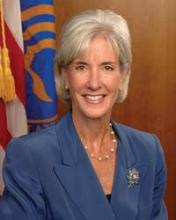The Obama administration issued a proposed a rule Feb. 1 clarifying how certain religious organizations could provide copayment free contraceptive coverage under the Affordable Care Act.
The proposed rule comes after months of controversy and several lawsuits from institutions that opposed having to provide contraceptive services based on their religious beliefs. During a press briefing Feb. 1, federal officials would not comment on whether the lawsuits prompted the policy change.
"Today, the administration is taking the next step in providing women across the nation with coverage of recommended preventive care at no cost, while respecting religious concerns," Health and Human Services Secretary Kathleen Sebelius said in a statement. "We will continue to work with faith-based organizations, women’s organizations, insurers, and others to achieve these goals."
The Family Research Council came out in strong opposition to the proposed regulation, saying that it did nothing to change the current policy and that it did not protect women’s health.
"The accounting gimmicks HHS is now proposing under the latest [proposed] regulation fail to satisfy the religious freedom protections that exist in other current laws and in the First Amendment of the U.S. Constitution," Anna Higgins, director of FRC’s Center for Human Dignity, said in a statement.
Meanwhile, organizations such as ACLU and Planned Parenthood Federation of America voiced support for the proposed rule.
"This policy delivers on the promise of women having access to birth control without co-pays no matter where they work," said Cecile Richards, president of Planned Parenthood Federation of America, in a statement. "This policy makes it clear that your boss does not get to decide whether you can have birth control."
Under the proposed rule, nonprofit religious organization, including nonprofit religious hospitals and higher education institutions, can receive an accommodation that would provide their employees enrolled in the health plans they sponsor with separate contraceptive coverage, with no copays, and at no cost to the organization.
Religious organizations would provide a notice to their insurer or third-party administrator, and in turn, the insurer or third-party administrator would provide the enrollees with copay-free contraceptive coverage through separate individual health insurance policies.
HHS officials said that they have not estimated the cost of the proposal, but it will be subsidized mostly by user fees that insurers will have to pay to participate in insurance exchanges. They said they didn’t expect the regulation to affect federal funds, because preventive services would lead to overall cost reduction.
Under the proposed rule, religious employers are not required to provide copay-free coverage for contraceptives or other services that violate their beliefs. HHS officials clarified the definition of "religious employer" by using a tax code primarily including churches, other houses of worship, and their affiliated organizations.
The proposed rule is open for public comment through April 8 this year. Comments can be given at www.regulations.gov.
On Twitter @NaseemSMiller


